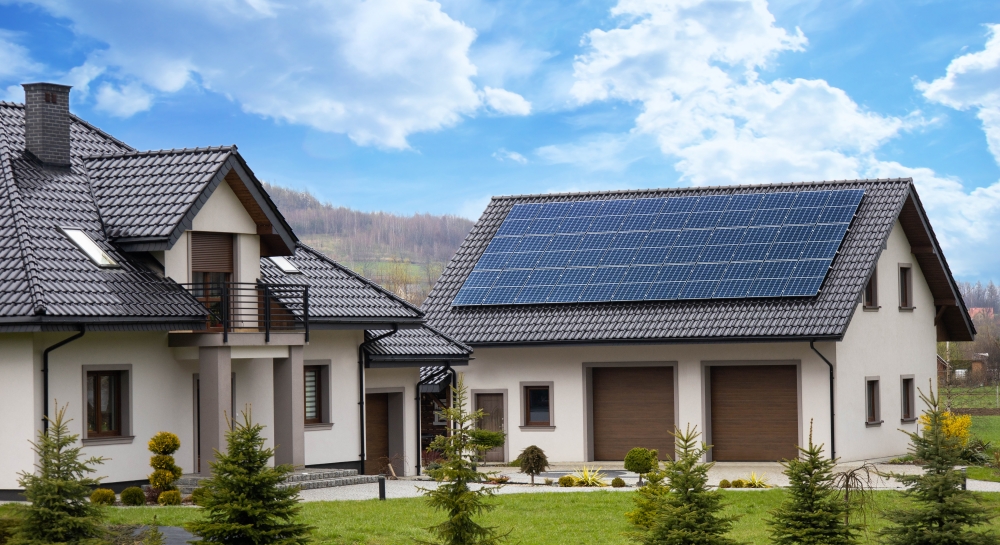The effects of climate change are well known. Therefore, many people are generally aware of the consequences of inaction or ignorance. That’s why some homeowners are building solar-powered homes or hybrid systems that combine solar energy and grid power.
Solar energy is perhaps the most accessible clean energy source homeowners can invest in. Besides the environmental benefits of investing in solar, solar is a smart long-term investment. But the extent to which you can save on energy depends on the type of solar system you have and your energy usage.
Moreover, you need to consider certain factors when building a solar-powered home. Building a sustainable home isn’t as easy as you might think. Solar system design and installation require extensive planning. Every house is different and will have different energy needs. So ideally, you should tailor a solar unit for your specific house.
Below are some considerations you ought to make when building a solar-powered house.
1. Location
Solar requires light energy to hit the solar panels to generate energy. Though, some areas receive more sunlight than others. Plus, if you factor in seasonality, the times during which the system could receive optimum sunlight will differ between regions.
So when building a solar-powered house, you need to consider this to ensure that you get the appropriate number of solar panels to generate sufficient energy. Perhaps you’d have to invest in more powerful solar systems if you stay in a colder climate. But if you’re building your house in a place that receives much sunlight, you’ll have more options.
2. Roof Structure
Solar panels should be oriented toward the sun to maximize sunlight absorption. Ideally, the south orientation is usually the best. But that’s not always possible. Therefore, you must ensure to choose the side that receives the most sunlight.
3. Energy Requirement
If the homeowner wants to go completely solar, it’s possible. If the owner wants to go hybrid, it’s also possible. However, you should note that the first thing that should be established is the energy requirement of that home. Every home has unique energy needs, and if you’re building solar into your home structure, you want to ensure that it meets your needs. Estimating your home’s energy requirements will require an expert’s hands because the eye test will not suffice.
Knowing a home’s energy requirements determines which solar energy solutions are suitable. Plus, it’ll help you learn more about the battery type and size you’ll need to power your home. Again, this would require expert advice from the contractor you’ll be working with, as well as the person designing the structure of your solar system.
4. Contracting Company
This is perhaps one of the most important considerations you should make. You want the people handling the installation to have experience. There’s a good chance that good contractors will offer warranties because of their service quality. So, it would be best if you’re looking for good contractors. Plus, reputable contractors have a reputation to maintain, so they have a greater incentive to offer excellent service.
Ideally, you need to look for one in your locale or the closest to where you stay. Although, you may have to do some extensive research to find the one that’s ideal for you. Carefully choosing your renewable energy services ensures long-term collaboration and help whenever you may need it. You can begin by reading online reviews and looking for testimonials from previous clients. You could also interview the various service providers you’ve contacted or work with references you’ve gotten from trusted sources. Moreover, ensure that you work with a registered or accredited service provider.
5. Quality and Durability
It’s always vital that you prioritize quality over quantity when investing in solar systems. The reason is that quality items tend to be more durable than poor-quality items. Plus, quality products tend to come with a warranty. Therefore, try to stick with quality products as best as you can.
Yes, investing in quality equipment could cost you a bit more than expected. But you’ll get durability in return. Besides, it’s not always the case that quality products are costly. You could get good quality items at a fair price too. Perhaps you need to consult your hardware store or contractor for more details.
6. Installation Cost
Now, before the installation process begins, you need to have a rough idea of what the total cost for the project will be. Thankfully, solar equipment costs have decreased because of innovation in PV technology. But, remember that every project will differ, and people or businesses typically have different budgets.
Therefore, knowing how much the installation will cost in advance will allow you to plan adequately. You can save or borrow while you still have the time. Plus, you need to find out if there are any tax cuts or credits you could take advantage of by installing a solar system.
Conclusion
Solar is an excellent investment for any homeowner. To future proof your home, it’s best to design it solar-ready before erecting it. However, even if the house is in place already, you could still convert the house to solar or choose to go hybrid. Nonetheless, you must partner with a reputable service provider who will perform the installation for you.


